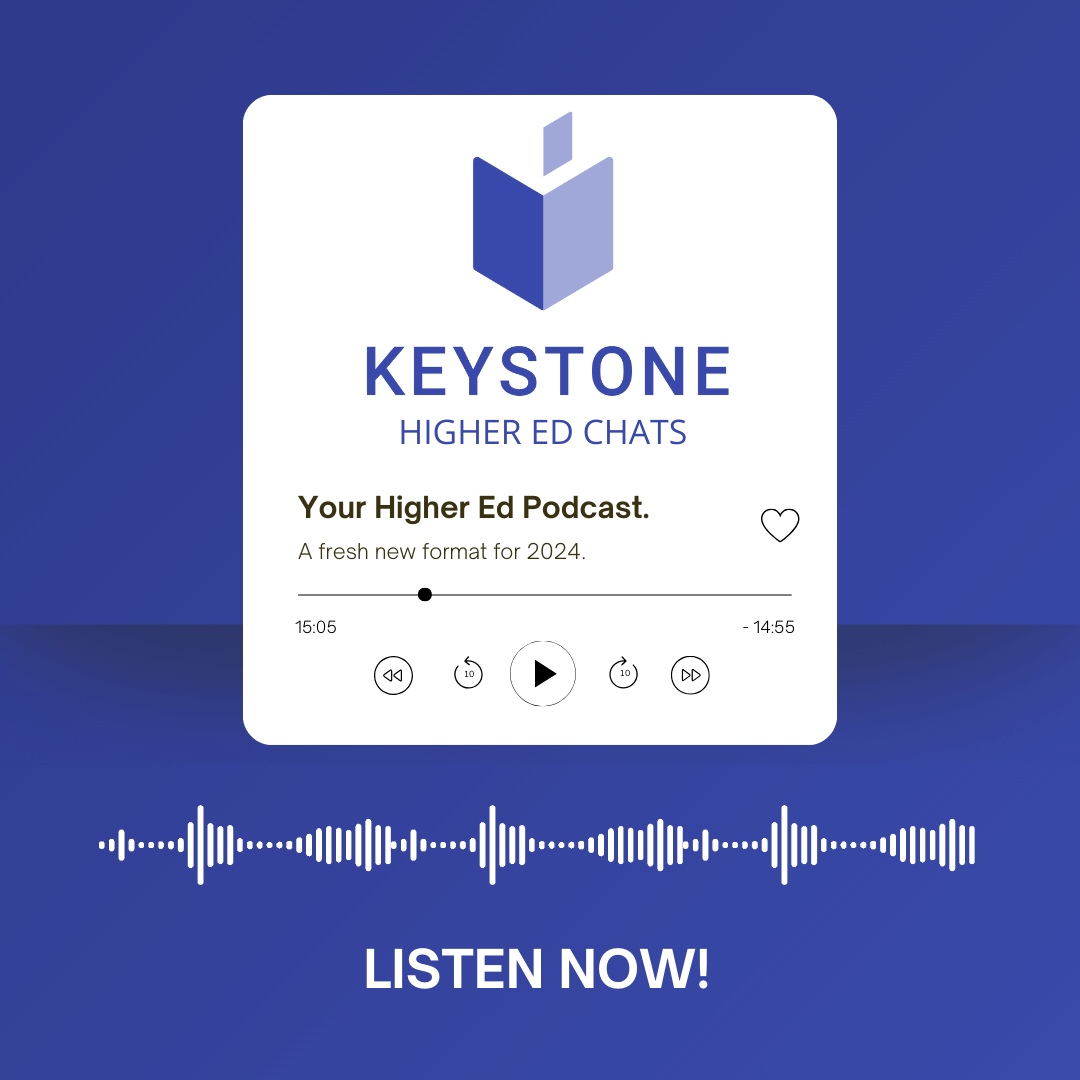- SERVICES
- HIGHER EDUCATION MARKETING
- ENGAGEMENT & ENROLLMENT MANAGEMENT
- STUDENT RECRUITMENT AGENCIES
- PROFESSIONAL EDUCATION & TRAINING
- WHO WE ARE
WHO WE ARE
Learn more about Keystone Education Group, including our leadership structure, why choose Keystone as your educational partner, and company press releases.
QUICK LINKS
- RESOURCES
RESOURCES
Find a range of helpful resources to help with your educational marketing. From on-demand webinars, reports & data, to customer testimonials and our downloadable media kit.
QUICK LINKS
- NEWS
- REQUEST A CALL

- Keystone Higher Education News
- Five Things International College Recruiters Need to Know About Generation Z
While Millennials have certainly captured the spotlight in recent discussions about generational differences, they’re far from the only demographic that matters today. When it comes to the outlook for higher education, in fact, another generation stands to have a major impact. We’re talking about “Generation Z,” AKA people born between the early 1990s and the mid-2000s who are now between 5 and 19 years old. What do these up-and-comers prioritize when it comes higher ed? Here’s a closer look at five key questions that will inform international recruitment moving forward.
1. What fields of study (FoS) are of interest to GenZ?
While the Millennial story is one of “innocence lost,” according to the New York Times, “Generation Z, by contrast, has had its eyes open from the beginning, coming along in the aftermath of those cataclysms in the era of the war on terror and the Great Recession.” The result? Unprecedented consciousness of the here and now partnered with mindfulness of the future.
To that end, a new national survey from Northeastern University reveals that members of Generation Z not only have a strong work ethic, but also a strong desire to control their own destinies -- both in college and in the workforce. “A new generation of Americans is on the rise: highly entrepreneurial, pluralistic, and determined to take charge of their own futures. Those of us in higher education must listen to this next generation and enable them to chart their own paths, gain valuable experience, and become the leaders of tomorrow,” says Northeastern President Joseph E. Aoun.
Also important to Generation Z? Not what they study, but where they study: According to Northeastern’s findings, a full 55 percent plan to live or study abroad in the future.
2. How do they study?
One UCLA student and lifestyle blogger told the NY Times, “We are the first true digital natives. I can simultaneously create a document, edit it, post a photo on Instagram and talk on the phone, all from the user-friendly interface of my iPhone. Generation Z takes in information instantaneously, and loses interest just as fast.”
The takeaway for colleges and universities looking to entice the next generation of students? They’re looking for content delivery on their own terms and in the most expedient way. Proposes Fast Company, “It’s not an attention problem, it’s an 8-second filter.”
Expect online learning to be a major part of bridging the gap -- albeit with a more targeted approach. Erica Orange, executive vice president of New York business consultancy The Future Hunters and a member of DeVry University’s Career Advisory Board told Time magazine, “MOOCs are not working that well because people only take one class at a time and then don’t finish it because it isn’t compelling. The next generation of MOOCs will be sensorily immersive, leveraging virtual reality to put students in the world they’re studying. Instead of having to memorize facts about the Civil War, for example, a student in a future MOOC will be on the battlefield.”
At the same time, vocational training -- with a focus on applicable skills over intangible degree qualifications -- is also on the rise. Continues Orange, “We’re now calling it competency-based education, which focuses on the mastery of work-related skills rather than command of a particular academic discipline.”
3. What degrees are they seeking?
This doesn’t mean that degrees are a thing of the past, however. Rather, that Generation Z students will prize degrees that allow them to graduate quickly and hit the ground running once they do. Options like the ability to earn college credits while still in college and free and cheap credits that accelerate the path from student to worker will be increasingly in demand.
And, of course, money matters. According to Jenna Miller of the Donald W. Reynolds National Center for Business Journalism, “Studies show that results are more important than cost to Gen Z. The generation has been described as extremely practical and is looking for degrees that will give a high return. Risk-averse Gen Zers are less willing than Millennials to gamble on a degree that may not lead to a stable, well-paying job. They are also less likely to be interested in community service and social issues. This may mean a change in focus for college programs.”
4. What are their concerns about higher ed?
Affordability is a big deal for Generation Z. Research shows that they’re especially averse to student loan debt, and also fearful about having enough money later in life, which makes practical skills and professional experience, such as internships, valuable commodities for them.
Which begs the question: How will they pay? The focus has somewhat shifted from parents to families, with teens assuming new ownership over the issue. Explains design and innovation firm Altitude, Inc., “Gen Z’s response to this tension – of increased demand for education and rising financial costs – has been to gain more control over and visibility into their education planning process. Teens today want to choose their degree carefully, understand clearly what jobs it opens up and acquire it at minimal cost.”
5. How do we communicate with them?
Generation Z students are also less likely to lean on their parents for college advice than previous generations or to fall for a heavy-handed sales pitch. So what are they looking for? Specificity and authenticity, for starters. “Gen Zers are highly skeptical and will quickly fact-check the authenticity of marketing efforts. Colleges are recognizing this trend by cutting down on flashy advertising and providing prospective students with more opportunities to talk to current students. Although parents are still important, marketing may not be directed as strongly towards them,” continues Miller.
Other communication imperatives when it comes to Gen Z? A digital approach -- including everything from mobile apps to cohesive social media campaigns to live-streaming -- is critical. But the most important – instant communication. Remember that 8-second filter we referenced earlier? Perhaps more than any other aspect of their lives, that discerning attention span applies to Gen Z’s communication expectations. Unlike Millennials, for whom email was ‘instant’ and text messaging a revelation, Gen Z have never lived without the concept of instant communication. In an era of read receipts and response rates, international recruiters need to engage and maintain communication with incoming students on their terms. Don’t despair – this doesn’t mean 24-7 attachment to your smartphone, mastering Snapchat filters or developing herculean strength in your thumbs. Find a smart messaging system that can do the heavy lifting for you – look for customizable instant replies, smart typing indicators, and flexible solutions. Your instant messaging system should function like the rest of your strategies – as a tool to automate the repetitive aspects of student recruitment while leaving you free to concentrate on the individual enquiries that will mature into qualified applicants.
Indeed, you must never underestimate the human element. Asserts Corey Seemiller, co-author of Generation Z Goes to College, “The No. 1 preferred form of communication was face-to-face. I think in a world where we envision Generation Z being digital natives, we also envision them only being digitally competent and only preferring digital methods of communication. But in many communications they still like a personal touch. So, as [admission professionals] think about recruitment, remember that the face-to-face thing is still very important to them–probably, more important than people are giving it credit for.”
Ultimately, we may not be able to precisely predict how higher education (and higher education recruitment) will look in the future. However, we do know at least one thing: keeping the wants and needs of Generation Z at the center of our strategies is essential to remaining relevant and competitive.
More about:
Related Tags
Just For You
Top Picks
Higher Ed Chats Podcast
Listen to the latest episodes of our Higher Ed Chats Podcast - new format for 2024. Hear from Higher Ed thought-leaders from around the world!

Webinar: Dos & Don'ts of Higher Ed Social Media
.png?width=500&name=Social%20Media%20Webinar%20March%2024%20Banners%20(3).png)
Join our live webinar on 27th March to hear from a panel of Higher Ed Social Media experts.
Subscribe
to get the latest news and updates





